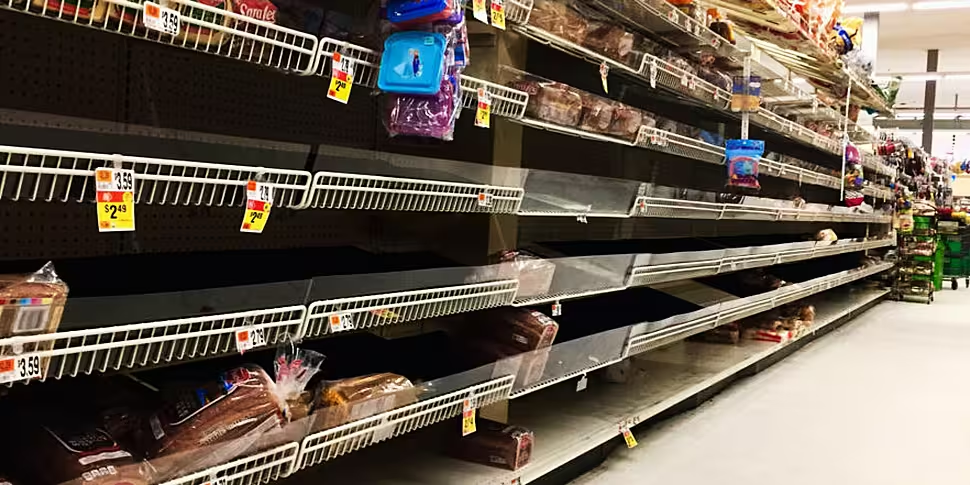The leading retail bodies in Ireland and Britain have issued a “stark warning” on the effects a ‘no-deal’ Brexit on consumers would have on consumers.
With just 36 days to go until the UK leaves the bloc, Retail Ireland, the Northern Ireland Retail Consortium and the British Retail Consortium said failure to reach a Brexit deal will have “devastating economic consequences.”
They issued a joint call for a solution – warning that the “time for brinksmanship and political games has long past.”
In a joint statement, the bodies warned that failure to reach a deal would lead to shortages of some goods – and squeeze household budget across the UK and Ireland.
Shortages
The groups said some food products could disappear off the shelves altogether – with sweets, cereals and processed foods likely to be worst affected.
On Newstalk Breakfast, Retail Ireland Director Thomas Burke said increased tariffs will have a big impact on prices.
“Everything from clothes to food products to different electronics all attract different types of products,” he said.
“But we do know that food products tend to attract the highest levels of tariffs.
“In the case that they do attract those tariffs, the concern from a retail perspective is that they will become uneconomic – effectively overnight – to stock and consumers will just decide to resile from spending money on them and look for alternatives.”
#BKNT Retail industry groups have issued a warning that a no-deal Brexit will lead to reduced availability of some goods.
Could a no-deal Brexit lead to food shortages and higher prices? We'll be hearing from @Retail_Irl pic.twitter.com/tWzZhJ54yJ— Newstalk Breakfast (@NTBreakfast) February 21, 2019
He said that, regardless of the type of Brexit agreed in the coming weeks, retailers will see an increase in operating costs.
He said the “current operating environment” means retailers will be unable to absorb the costs and will be forced to pass them on to consumers.
Food prices
The bodies warned that, if the UK reverts to World Trade Organisation rules, increases in tariffs and new regulatory checks could see everyday food items nearly doubling in price.
They said there are also concerns over increased costs related to new checks and delays at border crossings.
Aodhán Connolly, Director of the Northern Ireland Retail Consortium said Northern Irish families and industry will be hardest hit by the increases.
“Our households already have half of the discretionary income of British households and less than those in the Republic of Ireland,” he said.
“A no-deal Brexit will hit us first and hit us hardest. This is not acceptable.
“A hard Brexit means a hard border and the disintegration of supply chains that have been built up over 40 years of EU membership.
“This is not a binary choice for Northern Ireland between trade with the UK and trade with the EU.
“Our economy is built on access to both markets and we need that to survive. No-deal makes NI a less competitive place to do business and a more expensive place to live.”
Brexit
William Bain, Head of EU and International at the British Retail Consortium said prices will rise across Britain and Ireland, noting that, “this will affect the price of shopping in the Prime Minister’s constituency of Maidenhead in the same way as it will in Belfast or Dublin - with cost rises.”
The trade bodies said failure to reach a deal will put years of positive economic development and integration across the islands of the UK and Ireland at risk.
It comes after the UK Prime Minister Theresa May held "constructive" talks with the European Commission President Jean-Claude Juncker in Brussels yesterday.
The British Brexit secretary Stephen Barkley and UK Attorney General Geoffrey Cox will travel to Brussels today for talks aimed at breaking the ongoing Brexit impasse with Chief EU Negotiator Michel Barnier.









